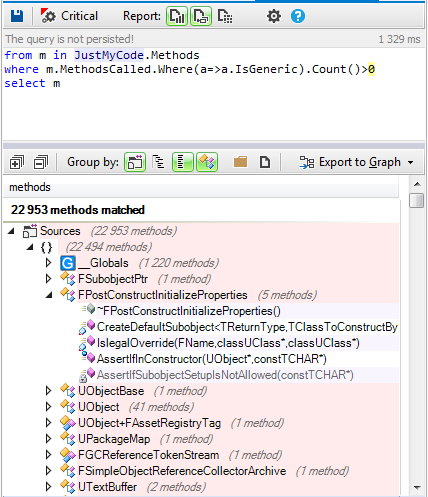Dev C++ Time Function
 -->
-->
The following functions are used with system time.
Functions in c programming with examples: A function is a block of statements, which is used to perform a specific task. Types: predefined and user-defined. Nov 29, 2016 Hansoft is the agile project management tool for enterprise teams. Fast, efficient, and flexible, Hansoft empowers teams to collaborate more efficiently so they can advance together and build better products. Hansoft runs natively on leading. Click here for Dev-C 5 FAQ. Last update:. When I compile my dos program and execute it, Dev-C minimizes and then restore in a second but nothing appears?
| Function | Description |
|---|---|
| GetSystemTime | Retrieves the current system date and time in UTC format. |
| GetSystemTimeAdjustment | Determines whether the system is applying periodic time adjustments to its time-of-day clock. |
| GetTimeFormat | Formats a system time as a time string for a specified locale. |
| NtQuerySystemTime | Returns the system time. |
| RtlLocalTimeToSystemTime | Converts the specified local time to system time. |
| RtlTimeToSecondsSince1970 | Converts the specified system time to the number of seconds since the first second of January 1, 1970. |
| SetSystemTime | Sets the current system time and date. |
| SetSystemTimeAdjustment | Enables or disables periodic time adjustments to the system's time-of-day clock. |
| SystemTimeToFileTime | Converts a system time to a file time. |
| SystemTimeToTzSpecificLocalTime | Converts a UTC time to a specified time zone's corresponding local time. |
| TzSpecificLocalTimeToSystemTime | Converts a local time to a UTC time. |
The following functions are used with local time.
C++ Time Function Example
| Function | Description |
|---|---|
| EnumDynamicTimeZoneInformation | Enumerates dynamic daylight saving time information entries stored in the registry. |
| FileTimeToLocalFileTime | Converts a UTC file time to a local file time. |
| GetDynamicTimeZoneInformation | Retrieves the current time zone and dynamic daylight saving time settings. |
| GetDynamicTimeZoneInformationEffectiveYears | Retrieves a range, expressed in years, for which a DYNAMIC_TIME_ZONE_INFORMATION has valid entries. |
| GetLocalTime | Retrieves the current local date and time. |
| GetTimeZoneInformation | Retrieves the current time zone settings. |
| GetTimeZoneInformationForYear | Retrieves the time zone settings for the specified year and time zone. |
| RtlLocalTimeToSystemTime | Converts the specified local time to system time. |
| SetDynamicTimeZoneInformation | Sets the current time zone and dynamic daylight saving time settings. |
| SetLocalTime | Sets the current local time and date. |
| SetTimeZoneInformation | Sets the current time zone settings. |
| SystemTimeToTzSpecificLocalTime | Converts a UTC time to a specified time zone's corresponding local time. |
| SystemTimeToTzSpecificLocalTimeEx | Converts a UTC time with dynamic daylight saving time settings to a specified time zone's corresponding local time. |
| TzSpecificLocalTimeToSystemTime | Converts a local time to a UTC time. |
| TzSpecificLocalTimeToSystemTimeEx | Converts a local time with dynamic daylight saving time settings to UTC time. |

The following functions are used with file time.
| Function | Description |
|---|---|
| CompareFileTime | Compares two file times. |
| FileTimeToLocalFileTime | Converts a UTC file time to a local file time. |
| FileTimeToSystemTime | Converts a file time to system time format. |
| GetFileTime | Retrieves the date and time that the specified file or directory was created, last accessed, and last modified. |
| GetSystemTimeAsFileTime | Retrieves the current system date and time in UTC format. |
| LocalFileTimeToFileTime | Converts a local file time to a file time based on UTC. |
| SetFileTime | Sets the date and time that the specified file or directory was created, last accessed, or last modified. |
| SystemTimeToFileTime | Converts a system time to a file time. |
The following functions are used with MS-DOS date and time.
Dev C++ Time Functions
| Function | Description |
|---|---|
| DosDateTimeToFileTime | Converts MS-DOS date and time values to a file time. |
| FileTimeToDosDateTime | Converts a file time to MS-DOS date and time values. |
The following functions are used with Windows time.
| Function | Description |
|---|---|
| GetSystemTimes | Retrieves system timing information. |
| GetTickCount | Retrieves the number of milliseconds that have elapsed since the system was started, up to 49.7 days. |
| GetTickCount64 | Retrieves the number of milliseconds that have elapsed since the system was started. |
The following functions are used with high-resolution performance counters.
| Function | Description |
|---|---|
| QueryPerformanceCounter | Retrieves the current value of the high-resolution performance counter. |
| QueryPerformanceFrequency | Retrieves the frequency of the high-resolution performance counter. |
The following functions are used with the auxiliary performance counter.
| Function | Description |
|---|---|
| QueryAuxiliaryCounterFrequency | Queries the auxiliary counter frequency. |
| ConvertAuxiliaryCounterToPerformanceCounter | Converts the specified auxiliary counter value to the corresponding performance counter value; optionally provides the estimated conversion error in nanoseconds due to latencies and maximum possible drift. |
| ConvertPerformanceCounterToAuxiliaryCounter | Converts the specified performance counter value to the corresponding auxiliary counter value; optionally provides the estimated conversion error in nanoseconds due to latencies and maximum possible drift. |
Dev C++ Time Function Chart
The following function is used with interrupt time.
C++ Time Function Milliseconds
| Function | Description |
|---|---|
| QueryInterruptTime | Gets the current interrupt-time count. |
| QueryInterruptTimePrecise | Gets the current interrupt-time count, in a more precise form than QueryInterruptTime does. |
| QueryUnbiasedInterruptTime | Gets the current unbiased interrupt-time count. The unbiased interrupt-time count does not include time the system spends in sleep or hibernation. |
| QueryUnbiasedInterruptTimePrecise | Gets the current unbiased interrupt-time count, in a more precise form than QueryUnbiasedInterruptTime does. The unbiased interrupt-time count does not include time the system spends in sleep or hibernation. |